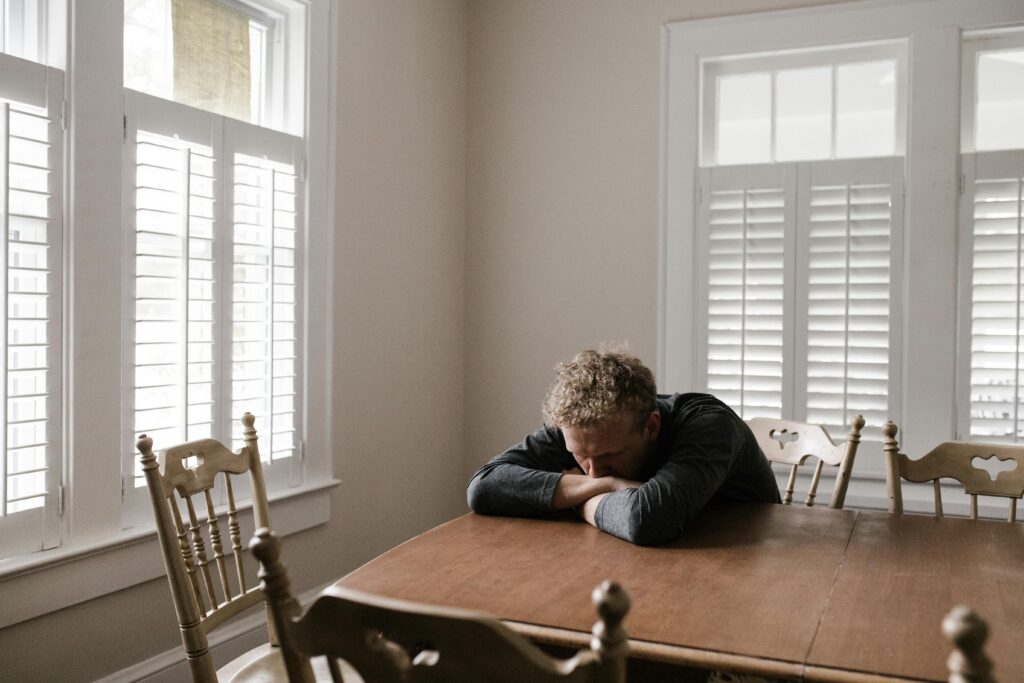
Today, addiction affects a significant portion of the population. In fact, according to the National Survey on Drug Use and Health, 48.5 million Americans aged 18 or older qualify as having a substance use disorder or “addiction”. That means almost 1 in 5 U.S. adults is an “addict”. Yet, for most of us, addiction is a thing to be ashamed of. Something to hide. We go to treatment out-of-state and lie about where we’re going, we struggle to tell our friends and family, we feel deep personal shame over our failure to overcome substance abuse on our own. Why?
It’s true that social stigma means that most of us are taught to see addiction as a moral failing. As a personal failing. The shame spiral associated with substance abuse also contributes to substance abuse. You feel ashamed of yourself for continuing to use, which makes you feel bad, which means you continue to use to feel better which creates a vicious cycle, where the shame and guilt drive further substance use, reinforcing the belief that you’re trapped in a never-ending loop of failure. This cycle makes it harder to break free because the underlying emotional pain becomes intertwined with the substance use, fueling both.
How do you break that cycle? How do you restructure your views of addiction as a mental health disorder aided by chemical dependence instead of as a personal moral failing? Everyone works differently so what works for you will be different for someone else, but this article will go over the steps you can take to start that process of letting go of shame and embracing recovery.
Substance Use Disorders are a not a disease (they are not contagious), they are not a personal choice (no one chooses to become addicted). Instead, they are a mental health disorder, classified as a temporary disability under United States law. You can even get temporary disability subsidies while you go into recovery and get treatment.
If you’re looking up or reading an article about overcoming shame, then you realize you have an addiction, you realize how much it has impacted you and the people around you and you’re actively trying to do better. Acknowledge that. Look at your journey. Write it down if you have to.
One very clear way to see exactly how far you’ve come is to make a daily, weekly, or monthly bar graph. You can add data points like how much money you spent on substances or how much of that substance you used. That will probably show you a clear picture of just how much you’ve reduced or quit substance abuse.
But it’s important to keep in mind that positive achievements like spending time with family, experiencing joy at little things, realizing you’ve grown and make yourself better – made it through therapy – are all important to. Try making a list of all the big realizations you’ve made, all the achievements you’ve made, all the goals you’ve reached. They will make you feel good and like you’re achieving something. Acknowledge all the work you’ve put in and everything you’ve learned. Even if you relapse, you’ll be going back into therapy from a better point than last time, which means you’ll be better equipped to stay in recovery.
Non-judgement is the practice of realizing that things don’t have to be perfect. That people change. That people make mistakes. That things happen. It means looking at someone as they are now and for what they are trying to do with themselves instead of only at past mistakes. That means acknowledging your past is not what you wanted for yourself and choosing to move forward positively.
That also means surrounding yourself with people who encourage and support your recovery. That may be difficult if you live with people who are still struggling with substance abuse. Or, for example, if you’ve hurt people and they are not yet able to forgive you. You can’t ask them to drop that and treat you with non-judgement, which means balancing things. Still, most people should be supportive of you and able to take the same view of addiction as a behavioral disorder you are recovering from.

In most cases, it’s never a bad idea to look for professional mental health support. That means asking for help and going to rehab, aftercare, or counseling depending on your needs. Cognitive behavioral therapy can help you to better understand addiction as a behavioral disorder. It can also help you tackle feelings of guilt and shame so that you can overcome them. Of course, that will mean putting in the work and moving yourself to a place where you don’t feel the need to feel shame – but it also means tackling the notions that addiction is something deeply shameful.
Even if you’ve already been to rehab, professional mental health support including outpatient treatment, personal therapy, and counseling can help you to improve your mindset, your behavioral reactions, and how you think about yourself and others. If you’re going to group therapy or a support group, you can also improve your exposure to others with similar problems, which will make it harder to maintain personal ideas of stigma and shame – because people you respect and look up to have the same problems. While that won’t help right away, nothing else will either, and you’ll have time to build up your own self-esteem while learning to look at other people as having the same problems as you – while being good people who are worthy of respect.
Stigma and shame around substance abuse are part of our culture. Overcoming it is an important part of recovering, taking control of yourself and your recovery, and taking ownership of who you want to be. Seeing your mental health problems as something to be ashamed of means you’re less likely to get treatment, less likely to talk about them, and less likely to normalize getting help for them. Being able to acknowledge substance abuse as a problem that can be treated and fixed, being able to let go of your past as your past, and being able to move forward in a positive way will be a powerful part of your recovery.
Fill out our confidential contact form now.
Your journey to recovery begins with one click.
Ignite Healing From Within | Your Road to Recovery Begins With People Who Understand Addiction
Licensed by the State Department of Health Care Services
191023BP -Spark to Recovery Expiration: 05/31/2025 | 191143AP-Stardust Solutions Expiration: 05/31/2026